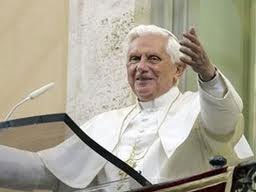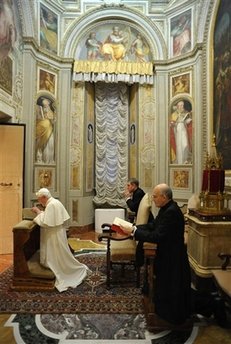VATICAN CITY, 30 NOV 2011 (VIS) – This morning’s general audience was celebrated in the Paul VI Hall in the presence of 5,500 faithful. Having recently completed a series of catecheses dedicated to prayer in the Old Testament, the Pope today began a new cycle on the subject of the prayer of Christ which, he said, was “like a hidden canal irrigating His life, relationships and actions, and guiding Him with increasing firmness to the total gift of self, in keeping with the loving plan of God the Father”.
One particularly significant moment of prayer followed the Baptism of Jesus in the Jordan. This, the Pope noted, poses a query as to why Jesus, Who was without sin, should have chosen to submit Himself to John’s Baptism of penance and conversion. John the Baptist himself raised the question, saying “I need to be baptised by you, and do you come to me?”. The Holy Father explained how “by emerging Himself in the Jordan River, Jesus … expressed His solidarity with people who recognise their sins, who chose to repent and change their lives. He helps us to understand that being part of the people of God means entering into a new life, a life in conformity with God. By this gesture Jesus anticipated the cross, beginning His active life by taking the place of sinners, bearing the weight of the sin of all humankind on His shoulders”.
By praying after His Baptism, Jesus demonstrates His intimate bond with the Father, “experiencing His paternity and apprehending the demanding beauty of His love. Speaking to God, Jesus receives confirmation of His mission”, with the words that resound from on high: “This is my son, the Beloved” and with the descent of the Holy Spirit upon Him. “Through prayer”, the Pope said, “Jesus lives in uninterrupted contact with the Father in order to achieve His project of love for mankind”. It is in this profound union with the Father that Jesus made the move for the hidden life of Nazareth to His public ministry.
pope benedict xvi
Pope Benedict on Prayer 14 – Psalm 110: “ true regality which is to be lived as service and the giving of self, following a path of obedience and love ‘to the end’.”
VATICAN CITY, 16 NOV 2011 (VIS) – During today’s general audience in St Peter’s Square, attended by over 11,000 pilgrims, the Holy Father imparted the final catechesis of his cycle dedicated to the Psalms. He focused on Psalm 110, which “Jesus Himself cited, and which the authors of the New Testament referred to widely and interpreted in reference to the Messiah. … It is a Psalm beloved by the ancient Church and by believers of all times”, which celebrates “the victorious and glorified Messiah seated at the right hand of God”.The Psalm begins with a solemn declaration: “The Lord says to my lord: ‘Sit at my right hand until I make your enemies your footstool”. Benedict XVI explained that “Christ is the Lord enthroned, the Son of man seated at the right hand of God. … He is the true king who by resurrection entered into glory, … higher than the angels, seated in the heavens over all other powers, … and with all His adversaries at His feet until the last enemy, death, is definitively defeated by Him”.God and the king celebrated in the Psalm are inseparably linked. “The two govern together, to the point that the Psalmist confirms that God Himself grants the regal sceptre, giving the king the task of defeating his adversaries. … The exercise of power is a task the king receivesdirectly from the Lord, a responsibility which involves dependence and obedience, thus becoming a sign to the people of God’s powerful and provident presence. Dominion over enemies, glory and victory are gifts the king has received, that make him a mediator of divine triumph over evil”.The priestly dimension, linked to that of regality, appears in verse four. “The Lord has sworn and will not change his mind ‘You are a priest forever, according to the order of Melchizedek'”. This priest, the king of Salem, had blessed Abraham and offered bread and wine following the victorious military campaign conducted by the patriarch to save Lot from the hands of his enemies. The king of the Psalm “will be a priest forever, mediator of the divine presence among His people, a catalyst for the blessing of God”. Jesus Christ “is the true and definitive priest, Who will complete and perfect the features of Melchizedek’s priesthood”. In the bread and wine of the Eucharist, Christ “offers Himself and, defeating death, brings life to all believers”.The final verses portray “the triumphant sovereign who, with the support of the Lord, having received power and glory from Him, opposes his enemies, defeating adversaries and judging nations”.
Pope Benedict on Prayer 13 – Psalm 119: “Open to hope and permeated with faith”
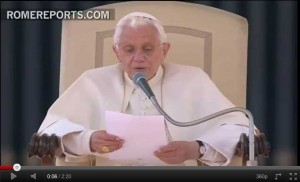 VATICAN CITY, 9 NOV 2011 (VIS) –
VATICAN CITY, 9 NOV 2011 (VIS) –
In his general audience this morning Benedict XVI focused his catechesis on Psalm 119, the longest of the Psalms, constructed as an acrostic in which each stanza begins with one of the twenty-two letters of the Hebrew alphabet. Its subject matter is “the Torah of the Lord; that is, His Law, a term which in its broadest and most complete definition comprehends teaching, instruction and life guidance. The Torah is revelation, it is the Word of God which is addressed to man and which arouses his response of faithful obedience and generous love”, the Pope said.
“The Psalmist’s faithfulness arises from listening to the Word, from keeping it in his heart, meditating upon it and loving it, like Mary who 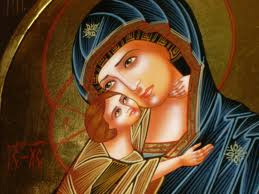 ‘treasured in her heart’ the words addressed to her, the marvellous events in which God revealed Himself and asked for her response of faith”, he explained. The Psalmist describes those who walk in the Law of the Lord as blessed, and indeed “Mary is blessed because she bore the Saviour in her womb, but above all because she accepted God’s annunciation and treasured His Word attentively and lovingly”.
‘treasured in her heart’ the words addressed to her, the marvellous events in which God revealed Himself and asked for her response of faith”, he explained. The Psalmist describes those who walk in the Law of the Lord as blessed, and indeed “Mary is blessed because she bore the Saviour in her womb, but above all because she accepted God’s annunciation and treasured His Word attentively and lovingly”.
Psalm 119 is constructed around this Word of life and blessing. Its central theme is the Word and the Law, and its verses are replete with synonyms thereof such as “precepts, decrees, promises”, associated with verbs such as “to know, to love, to meditate, to live”, the Holy Father explained. “The entire alphabet features in the twenty-two verses of the Psalm, as does the entire vocabulary of the believer’s relationship of trust with God. We find praise, thanksgiving and trust, but also supplication and lamentation; however, all of them are pervaded by the certainty of divine grace and the power of the Word of God. Even those verses most marked by suffering and darkness remain open to hope and are permeated with faith”.
The Law of God, which is “the centre of life”, must be “listened to with obedience but not servility, with filial trust and awareness. To listen to the Word is to have a personal encounter with the Lord of life. … The fulfilment of the Law is to follow Jesus”. Thus Psalm 119 “guides us towards the Gospel”, the Pope explained.
listen to the Word is to have a personal encounter with the Lord of life. … The fulfilment of the Law is to follow Jesus”. Thus Psalm 119 “guides us towards the Gospel”, the Pope explained.
In this context he focused particularly on verse 57: “The Lord is my portion; I promise to keep your words”.
“The term ‘portion'”, he explained, “evokes the partition of the Promised Land among the tribes of Israel, when the Levites were given no part of the territory because their ‘portion’ was the Lord Himself. … These verses are also important for us today, especially for priests, who are called to live from the Lord and from His Word alone, with no other guarantees, no other wealth, and having Him as their one source of true life. It is in this light that we can understand the free choice of celibacy for the Kingdom of heaven, which must be rediscovered in all its beauty and power.
“These verses are also important for the faithful, the People of God who belong only to Him”, the Pope added in conclusion. “They are called to experience the radical nature of the Gospel, to be witnesses of the life brought by Christ, the new and definitive ‘High Priest’ Who offered Himself in sacrifice for the salvation of the world. The Lord and His Word are our ‘land’ in which to live in communion and joy”.
Pope Benedict on Prayer 12 – Psalm 136: “Man Forgets but God Remains Faithful””
VATICAN CITY, 19 OCT 2011 (VIS) –
Some 20,000 pilgrims attended Benedict XVI’s general audience, which was held this morning in St. Peter’s Square. Continuing a series of catecheses dedicated to the Psalms, the Holy Father focused his attention on Psalm 136, “a great hymn of praise which celebrates the Lord in the many and repeated manifestations of His goodness down human history”.
The Pope explained how, in Jewish tradition, this Psalm is sung at the end of the Passover supper, and therefore it was probably also pronounced by Jesus at the last Passover He celebrated with His disciples. The text enumerates God’s many interventions in favour of His people “and each proclamation of a salvific action by the Lord is answered by an antiphon reiterating the main cause for praise: God’s eternal love, a love which, according to the Hebrew term used, implies faithfulness, mercy, goodness, grace and tenderness”.
God is first presented as “He Who ‘does great wonders’, first among them that of the creation: heaven, earth and stars. … With the creation the Lord shows Himself in all His goodness and beauty. He commits Himself to life, revealing a desire for good whence all other salvific actions arise”.
The Psalm goes on to consider God’s manifestations in history, evoking the great moment when the Israelites were freed from slavery in Egypt. The forty years of wandering in the desert were “a decisive period for Israel which, allowing itself to be guided by the Lord, learned to live on faith, obedient and docile to the laws of God. Those were difficult years, marked by the harshness of life in the desert, but also a happy time of confidence and filial trust in the Lord”.
“The history of Israel has known exhilarating moments of joy, of fullness of life, of awareness of the presence of God and His salvation”, said the Pope. “But it has also been marked by episodes of sin, painful periods of darkness and profound affliction. Many were the adversaries from whom the Lord liberated His people”. The Psalm speaks of these events, in particular the Babylonian exile and the destruction of Jerusalem, “when it seemed that Israel had lost everything, even its own identity, even its trust in the Lord. However, God remembers, and frees. The salvation of Israel and of all mankind is bound to the Lord’s faithfulness, to His memory. While man forgets easily, God remains faithful: His memory is a precious casket containing that ‘love which endures forever’ about which our Psalm speaks”.
The Psalm concludes by reminding us that God feeds His creatures, “caring for life and giving
bread. … In the fullness of time the Son of God became man to give life, for the salvation of each one of us; and He continues to gives Himself as bread in the mystery of the Eucharist, so as to draw us into His covenant, which makes us children. So great is God’s merciful goodness, the sublimity of His ‘love which endures forever'”. In conclusion the Pope read a quote from the First Letter of St. John, advising the faithful to bear it in mind in their prayers: “See what love the Father has given us, that that we should be called children of God; and that is what we are”.
AG/ VIS 20111019 (560)
raise the Lord, for he is good: for his mercy endures for ever.
2 Praise the God of gods: for his mercy endures for ever.
3 Praise the Lord of lords: for his mercy endures for ever.
4 Who alone does great wonders: for his mercy endures for ever.
5 Who made the heavens in understanding: for his mercy endures for ever.
6 Who established the earth above the waters: for his mercy endures for ever.
7 Who made the great lights: for his mercy endures for ever.
8 The sun to rule the day: for his mercy endures for ever.
9 The moon and the stars to rule the night: for his mercy endures for ever.
10 Who smote Egypt with their firstborn: for his mercy endures for ever.
11 Who brought out Israel from among them: for his mercy endures for ever.
12 With a mighty hand and with a stretched out arm: for his mercy endures for ever.
13 Who divided the Red Sea into parts: for his mercy endures for ever.
14 And brought out Israel through the midst thereof: for his mercy endures for ever.
15 And overthrew Pharao and his host in the Red Sea: for his mercy endures for ever.
16 Who led his people through the desert: for his mercy endures for ever.
17 Who smote great kings: for his mercy endures for ever.
18 And slew strong kings: for his mercy endures for ever.
19 Sehon king of the Amorrhites: for his mercy endures for ever.
20 And Og king of Basan: for his mercy endures for ever.
21 And he gave their land for an inheritance: for his mercy endures for ever.
22 For an inheritance to his servant Israel: for his mercy endures for ever.
23 For he was mindful of us in our affliction: for his mercy endures for ever.
24 And he redeemed us from our enemies: for his mercy endures for ever.
25 Who gives food to all flesh: for his mercy endures for ever.
26 Give glory to the God of heaven: for his mercy endures for ever. Give glory to the Lord of lords: for his mercy endures for ever.
Pope Benedict on Prayer 11 – Psalm 126: “May those who sow in tears, reap with shouts of joy”
HUMAN HISTORY IS A HISTORY OF SALVATION – Psalm 126
VATICAN CITY, OCT. 12, 2011 (Zenit.org).- Here is a translation of the Italian-language catechesis Benedict XVI gave today during the general audience held in St. Peter’s Square. The Pope today continued his catecheses on prayer with a reflection on Psalm 126.
* * *
In the previous catecheses, we have meditated on a number of psalms of lament and of trust. Today, I would like to reflect with you on a notably joyous psalm, a prayer that sings with joy the marvels of God. It is Psalm 126 — according to Greco-Latin numbering, 125 — which extols the great things the Lord has done with His people, and which He continues to do with every believer.
The psalmist begins the prayer in the name of all Israel by recalling the thrilling experience of salvation:
“When the Lord restored the fortunes of Zion,
we were like those who dream.
Then our mouth was filled with laughter,
and our tongue with shouts of joy” (Verses 1-2a).
The psalm speaks of “restored fortunes”; that is, restored to their original state in all their former favorability. It begins then with a situation of suffering and of need to which God responds by bringing about salvation and restoring the man who prays to his former condition; indeed, one that is enriched and even changed for the better. This is what happens to Job, when the Lord restores to him all that he had lost, redoubling it and bestowing upon him an even greater blessing (cf. Job 42:10-13), and this is what the people of Israel experience in returning to their homeland after the Babylonian exile.
This psalm is meant to be interpreted with reference to the end of the deportation to a foreign land: The expression “restore the fortunes of Zion” is read and understood by the tradition as a “return of the prisoners of Zion.” In fact, the return from exile is paradigmatic of every divine and saving intervention, since the fall of Jerusalem and the deportation into Babylon were devastating experiences for the Chosen People, not only on the political and social planes, but also and especially on the religious and spiritual ones. The loss of their land, the end of the davidic monarchy and the destruction of the Temple appear as a denial of the divine promises, and the People of the Covenant, dispersed among the pagans, painfully question a God who seems to have abandoned them.
Therefore, the end of the deportation and their return to their homeland are experienced as a marvelous return to faith, to trust, to communion with the Lord; it is a “restoring of fortunes” that involves a conversion of heart, forgiveness, re-found friendship with God, knowledge of His mercy and a renewed possibility of praising Him (cf. Jeremiah 29:12-14; 30:18-20; 33:6-11; Ezekiel 39:25-29). It is an experience of overflowing joy, of laughter and of cries of jubilation, so beautiful that “it seems like a dream.” Divine help often takes surprising forms that surpass what man is able to imagine; hence the wonder and joy that are expressed in this psalm: “The Lord has done great things.” This is what the nations said, and it is what Israel proclaims:
“Then they said among the nations,
‘the Lord has done great things for them.’
The Lord has done great things for us;
we are glad” (Verses 2b-3).
God performs marvelous works in the history of men. In carrying out salvation, He reveals Himself
to all as the powerful and merciful Lord, a refuge for the oppressed, who does not forget the cry of the poor (cf. Psalm 9:10,13), who loves justice and right and of whose love the earth is filled (cf. Psalm 33:5). Thus, standing before the liberation of the People of Israel, all the nations recognize the great and marvelous things God has accomplished for His People, and they celebrate the Lord in His reality as Savior.
And Israel echoes the proclamation of the nations, taking it up and repeating it once more — but as the protagonist — as a direct recipient of the divine action: “The Lord has done great things for us”; “for us” or even more precisely, “with us,” in hebrew ‘immanû, thus affirming that privileged relationship that the Lord keeps with His chosen ones, and which is found in the nameEmmanuel, “God with us,” the name by which Jesus would be called, His complete and full revelation (cf. Matthew 1:23).
Dear brothers and sisters, in our prayer we should look more often at how, in the events of our own lives, the Lord has protected, guided and helped us, and we should praise Him for all He has done and does for us. We should be more attentive to the good things the Lord gives to us. We are always attentive to problems and to difficulties, and we are almost unwilling to perceive that there are beautiful things that come from the Lord. This attention, which becomes gratitude, is very important for us; it creates in us a memory for the good and it helps us also in times of darkness. God accomplishes great things, and whoever experiences this — attentive to the Lord’s goodness with an attentiveness of heart — is filled with joy. The first part of the psalm concludes on this joyous note. To be saved and to return to one’s homeland from exile are like being returned to life: Freedom opens up to laughter, but is does so together with a waiting for a fulfillment still desired and implored. This is the second part of our psalm, which continues:
St. Therese of Lisieux and the Little Way
VATICAN CITY, 6 APR 2011 (VIS) – In his general audience in St. Peter’s Square today, attended by more than 10,000 people, Benedict XVI dedicated his catechesis to St. Therese of Lisieux, or St. Therese of the Child Jesus and the Holy Face, “who lived in this world for only twenty-four years at the end of the nineteenth century, leading a very simple and hidden life, but who, after her death and the publication of her writings, became one of the best-known and loved saints”.
“Little Therese“, the Pope continued, “never failed to help the most simple souls, the little ones, the poor and the suffering who prayed to her, but also illuminated all the Church with her profound spiritual doctrine, to the point that the Venerable John Paul II, in 1997, granted her the title of Doctor of the Church … and described her as an ‘expert in scientia amoris’. Therese expressed this science, in which all the truth of the faith is revealed in love, in her autobiography ‘The Story of a Soul’, published a year after her death”.
Therese was born in 1873 in Alencon, France. She was the youngest of the nine children of Louis and Zelie Martin, and was beatified in 2008. Her mother died when she was four years old, and Therese later suffered from a serious nervous disorder from which she recovered in 1886 thanks to what she later described as “the smile of the Virgin”. In 1887 she made a pilgrimage to Rome with her father and sister, where she asked Leo XIII for permission to enter Carmel of Lisieux, at just fifteen years of age. Her wish was granted a year later; however, at the same time her father began to suffer from a serious mental illness, which led Therese to the contemplation of the Holy Face of Christ in his Passion. In 1890 she took her vows. 1896 marked the beginning of a period of great  physical and spiritual suffering, which accompanied her until her death.
physical and spiritual suffering, which accompanied her until her death.
In those moments, “she lived the faith at its most heroic, as the light in the shadows that invade the soul” the Pope said. In this context of suffering, living the greatest love in the littlest things of daily life, the Saint realised her vocation of becoming the love at the heart of the Church”.
She died in the afternoon of 30 September, 1897, uttering the simple words, “My Lord, I love You!”. “These last words are the key to all her doctrine, to her interpretation of the Gospel”, the Pope emphasised. “The act of love, expressed in her final breath, was like the continued breathing of the soul … The words ‘Jesus, I love You’ are at the centre of all her writings”.
St. Therese is “one of the ‘little ones’ of the Gospel who allow themselves to be guided by God, in the depth of His mystery. A guide for all, especially for… theologians. With humility and faith, Therese continually entered the heart of the Scriptures which contain the Mystery of Christ. This reading of the Bible, enriched by the science of love, does not oppose academic science. The ‘science of the saints’, to which she refers on the final page of ‘The Story of a Soul’, is the highest form of science”.
“In the Gospel, Therese discovers above all the Mercy of Jesus … and ‘Trust and Love’ are therefore the end point of her account of her life, two words that, like beacons, illuminated her saintly path, in order to guide others along the same ‘little way of trust and love’, of spiritual childhood. Her trust is like that of a child, entrusting herself to the hands of God, and inseparable from her strong, radical commitment to the true love that is the full giving of oneself”, the Holy Father concluded.
More on St. Therese can be found here
Also click here for a Novena to St. Therese
Pope Benedict on Prayer 9 – God does not abandon us
VATICAN CITY, 14 SEP 2011 (VIS) –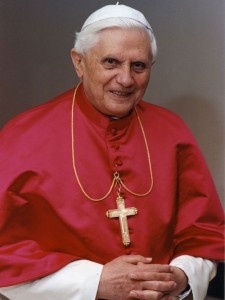
This morning the Holy Father travelled by helicopter from the Apostolic Palace at Castelgandolfo to the Vatican, where he held his weekly general audience in the Paul VI Hall. In his catechesis he dwelt on the first part of Psalm 22, focusing on the theme of prayers of supplication to God.
The Psalm, which remerges in the narrative of Christ’s Passion, presents the figure of an innocent man persecuted and surrounded by adversaries who seek his death. He raises his voice to God “in a doleful lament which, in the certainty of faith, mysteriously gives way to praise”.
The Psalmist’s opening cry of “my God, my God, why have you forsaken me?” is “an appeal addressed to a God Who appears distant, Who does not respond”, said the Holy Father. “God is silent, a silence that rends the Psalmists heart as he continues to cry out incessantly but finds no response”. Nonetheless, he “calls the Lord ‘my’ God, in an extreme act of trust and faith. Despite appearances, the Psalmist cannot believe that his bond with the Lord has been severed entirely”.
The opening lament of Psalm 22 recurs in the Gospels of Matthew and Mark in the cry the dying Jesus makes from the cross. This, Benedict XVI explained, expresses all the desolation the Son of God felt “under the crushing burden of a
mission which had to pass through humiliation and destruction. For this reason He cried out to the Father. … Yet His was not a desperate cry, as the Psalmist’s was”.
Violence dehumanises
Sacred history, the Pope continued, “has been a history of cries for help from the people, and of salvific responses from God”. The Psalmist refers to the faith of his ancestors “who trusted … and were never put to shame”, and he describes his own extreme difficulties in order “to induce the Lord to take pity and intervene, as He always had in the past”.
The Psalmist’s enemies surround him, “they seem invincible, like dangerous ravening beasts. … The images used in the Psalm also serve to underline the fact that when man himself becomes brutal and attacks his fellow man, … he seems to lose all human semblance. Violence always contains some bestial quality, and only the salvific intervention of God can restore man to his humanity”.
At this point, death begins to take hold of the Psalmist. He describes the moment with dramatic images “which we come across again in the narrative of Christ’s Passion: the bodily torment, the unbearable thirst which finds an echo in Jesus’ cry of ‘I am thirsty’, and finally the definitive action of his tormenters who, like the soldiers under the cross, divide among themselves the clothes of the victim, whom they consider to be already dead”.
At this point a new cry emerges, “which rends the heavens because it proclaims a faith, a certainty, that is beyond all doubt. … The Psalm turns into thanksgiving. … The Lord has saved the petitioner and shown him His face of mercy. Death and life came together in an inseparable mystery and life triumphed. … This is the victory of faith, which can transform death into the gift of life, the abyss of suffering into a source of hope”. Thus the Psalm leads us to relive Christ’s Passion and to share the joy of His resurrection.
In closing, the Pope invited the faithful to distinguish deeper reality from outward appearance, even when God is apparently silent. “By placing all our trust and hope in God the Father, we can pray to Him with faith at all moments of anguish, and our cry for help will turn into a hymn of praise”.
AG/ VIS 20110914 (630)
Published by VISarchive 02 – Wednesday, September 14, 2011
9 – 11
.
Prayer of Pope Benedict XVI at Ground Zero
“We ask you, in your compassion to bring healing to those who, because of their presence here that day, suffer from injuries and illness. Heal, too, the pain of still-grieving families and all who lost loved ones in this tragedy. Give them strength to continue their lives with courage and hope.
“We are mindful as well of those who suffered death, injury, and loss on the same day at the Pentagon and in Shanksville, Pennsylvania. Our hearts are one with theirs as our prayer embraces their pain and suffering.
“God of peace, bring your peace to our violent world: peace in the hearts of all men and women and peace among the nations of the Earth. Turn to your way of love those whose hearts and minds are consumed with hatred.
“God of understanding, overwhelmed by the magnitude of this tragedy, we seek your light and guidance as we confront such terrible events. Grant that those whose lives were spared may live so that the lives lost here may not have been lost in vain. Comfort and console us, strengthen us in hope, and give us the wisdom and courage to work tirelessly for a world where true peace and love reign among nations and in the hearts of all.” AMEN
Pray for the Holy Father’s Intentions for August 2011 – Discerning Hearts
August 2011
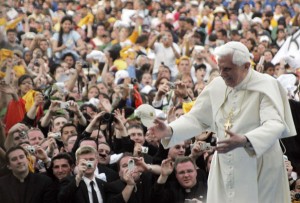 General Intention: That the World Youth Day taking place in Madrid may encourage all the young people of the world to root and found their lives in Christ.
General Intention: That the World Youth Day taking place in Madrid may encourage all the young people of the world to root and found their lives in Christ.
Missionary Intention: That Christians of the West, docile to the action of the Holy Spirit, may re-encounter the freshness and enthusiasm of their faith.
Pray for the Holy Father’s Intentions for July 2011 – Discerning Hearts
General Intention: That Christians may contribute to alleviating the material and spiritual suffering of AIDS patients, especially in the poorest countries.
Missionary Intention: For the religious who work in mission territories, that they may be witnesses of the joy of the Gospel and living signs of the love of Christ.

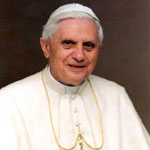

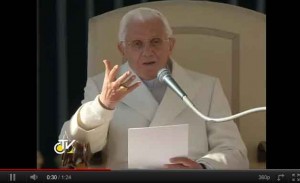
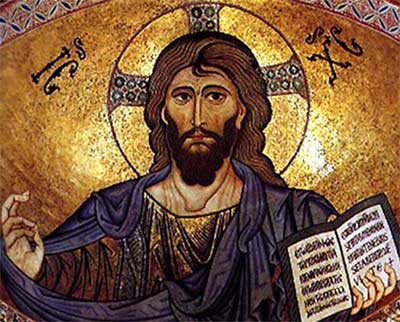

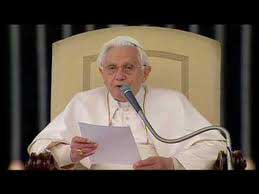


 raise the
raise the 